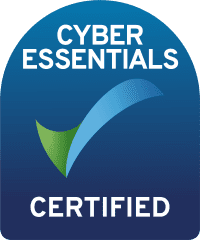Eligibility for Employment Allowance: further employer guidance
If you are unsure of your eligibility you should read this further guidance to help you decide if your business or charity is able to claim the Employment Allowance.
Whilst not exhaustive, the principles outlined in this guidance may be applied to a wide range of business situations. Also where helpful we will add further examples.
Business functions and types:
Functions either wholly or mainly of a public nature
Public authorities
Pharmacies
Educational institutions
Domestic staff
Franchises
Self employed
Partnerships
Community Amateur Sports Clubs
Personal and Managed Service Companies
Business takeovers
Business demergers
Connected businesses and charities
Functions either wholly or mainly of a public nature
Functions are either wholly or mainly of a public nature, if you are carrying out more than 50% of your work
in or for the public sector. For example:
NHS services
General Practitioner services
the managing of housing stock owned by or for a local council
providing a meals on wheels service for a local council
refuse collection for a local council
prison services
collecting debt for a government department
You do not carry out a function of a public nature, if you are:
providing security and cleaning services for a public building, such as government or local council offices
supplying IT services for a government department or local council
Registered charities can claim the Employment Allowance, even if they are wholly or mainly carrying out functions of a public nature. This is subject to the connected rules for charities.
Also, if less than 50% of a businesses work is of a public nature, it will be entitled to the Employment Allowance. When considering the proportion of the business which is of a public nature this could be based on the number of employees engaged in public nature duties or the percentage of time spent on public nature duties. Alternatively, a business can consider turnover derived from the public nature activities.
Examples of functions wholly or mainly of a public nature
The local surgery has 5 General Practitioners (GPs), 2 nurses, 3 receptionists and a cleaner. The GP’s are all partners in the practice. NHS patients make up 90% of the GP’s work. There is no entitlement to the Employment Allowance, because the majority of the work done, is wholly or mainly of a public nature.
A Council has set up a company limited by guarantee, which is an arms length management organisation (ALMO) whose sole responsibility is to look after the Council’s housing stock. The ALMO is not eligible for the Employment Allowance as it is carrying out functions of a public nature (managing housing stock which used to be the responsibility of the local authority).
Example of functions that are not wholly or mainly of a public nature
Guarding prisoners on behalf of the government makes up 25% of Padlock Security Limited’s business. The remaining 75% of the company’s work is providing security to private businesses and individual clients. Padlock Security Limited is entitled to the Employment Allowance because the majority of their work is not of a public nature.
Public authorities
Public authorities (such as local authorities, town councils and parish councils) are not eligible for the Employment Allowance unless they have charitable status.
Pharmacies
Independent pharmacies conducting a business, including over the counter sales as well as dispensing NHS prescriptions, are entitled to claim the Employment Allowance.
Educational Institutions
Schools, academies, further education colleges and universities are entitled to claim the Employment Allowance if they are private businesses or charities. This includes local authority or central government funded institutions provided they have charitable status.
If your charity is connected to another charity, then there will be entitlement to just one allowance for all of the connected charities. So, an education trust which controls several academies with charitable status will be entitled to just one allowance and it will be up to them to decide which academy makes the claim.
Domestic staff
Employers of domestic staff will be unable to claim the Employment Allowance as the employees are all being employed in a personal capacity to support the running of a household.
Franchises
Where a person operates a franchise, the employer (franchise holder) will be entitled to the Employment Allowance. However, if the franchise holder controls more than one franchise of a business, there will only be entitlement to one Employment Allowance for all of the franchises of the business controlled by that franchise holder.
Self employed
Can the self-employed claim the Employment Allowance?
Yes, but only if you have employees and your business pays employer Class 1 NICs on your employees’ earnings.
Partnerships
Can a partnership claim the Employment Allowance?
Yes, but only if your partnership pays employer Class 1 NICs on your employees’ or directors’ earnings.
Community Amateur Sports Clubs
Can a Community Amateur Sports Club (CASC) claim the Employment Allowance?
Yes, if your CASC pays employer Class 1 NICs on your employees’ or directors’ earnings.
Personal and Managed Service Companies
You cannot claim the allowance for any deemed payments of employment income. However, you can claim the Employment Allowance against the employers Class 1 NICs arising on the earnings paid to your employees.
For more information about Service Companies and deemed payments go to
Business takeovers
If your business takes over another business during the tax year there will be no entitlement to any remaining balance of the Employment Allowance due from the employer’s Class 1 NICs of the employees who worked for the business you have taken over or for employees who are carrying on the work of the business you have taken over. This also applies to employees moved as part of regulations relating to Transfer of Undertakings (Protection of Employment), known as 'TUPE transfers'.
Example of a business takeover and effect on entitlement to the Employment Allowance
A is self employed and owns a plumbing business and employs 2 employees. A claims the Employment Allowance in respect of the employers Class 1 NICs that are due on the earnings paid to the 2 employees. During the year, A decides to sell his business to B, who owns an electrical business and who wishes to diversify into other areas. B completes the takeover on 1 November. B retains the 2 employees as they have plumbing expertise. B is not entitled to any remaining unclaimed balance of the Employment Allowance on A’s former employees or for A’s former business irrespective of whether or not A’s employees are retained. B is, however, entitled to the Employment Allowance for the full year on his electrical business. Any Employment Allowance already claimed by A prior to the business takeover does not become due to be repaid by A or B.
Business demergers
If your business splits during the tax year and creates new businesses there will be no entitlement to the Employment Allowance in that tax year for any of the new businesses.
Example of a business demerger and effect on entitlement to the Employment Allowance
A and his wife B run a hairdressing salon and are claiming the Employment Allowance on the employers Class 1 NICs arising on earnings paid to their employees. In October, they decide to split the business with A taking all of the male customers and B taking all of the female customers and create 2 new companies. The 2 new companies are not entitled to the Employment
Allowance in the year that the business is split, nor are they entitled to any balance of the Employment Allowance that was unclaimed by the original business. In the next tax year, both businesses will be entitled to the Employment Allowance, provided they are not connected companies.
Connected businesses and charities
Can connected businesses and charities claim the Employment Allowance?
If a company has control of another company, or both companies are under the control of the same person or persons for example, companies linked in a group, these companies are connected.
If the same person or connected persons control 2 or more charities and the charities share the same (or substantially similar) purpose and activities, or both charities belong to a group of charities, the charities for the purpose of the Employment Allowance are connected.
If a charity controls a trading business, they are also considered connected for the purposes of the Employment Allowance.
Where this is the case, you will only be entitled to one Employment Allowance to use against one PAYE scheme (regardless of how many PAYE schemes you operate). It is up to you to nominate which PAYE scheme to claim the allowance against.
If your business controls a charity, they are not connected and you can claim the Employment Allowance for both the company and the charity.
See guidance on connected companies and connected charities for more information.


